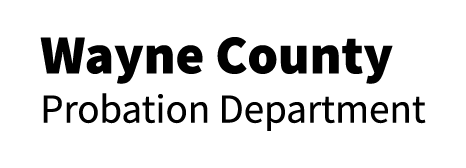
Juvenile Supervision
Supervision types
Informal Adjustment
After completing a preliminary inquiry, an intake officer (probation officer) can recommend that a delinquency petition not be filed and recommend an informal adjustment so that you and your child can be offered services and be supervised by probation for participation in those services. “Informal adjustments” are frequently recommended when the child has little or no history of delinquent behavior with the court, and the charge is not serious. The intake officer (probation officer) must have a good legal reason to believe your child is delinquent. Your child and you must agree to the informal adjustment program. If your child completes the program, they are not found to be delinquent by the court, and the case is closed. Informal adjustments can be used for both status and delinquent offenses. Informal adjustments can last up to six (6) months and may be extended once if necessary. If your child fails to participate, the prosecutor can file a delinquency petition and begin formal court proceedings. If you fail to do what the court ordered, the court can find you in contempt.
Formal Probation
Formal Probation is ordered by the judge at a court hearing. Formal Probation is similar to Informal Adjustment, but the youth and parent are actually brought before the court. This is a program the judge can put a child into that requires the child to stay out of trouble. The program will require the child to do certain things like attend school, comply with treatment/mental health services, refrain from the use of drugs and alcohol, submit to drug screening, community service, and other activities that a probation officer will assist you with.
Parental Participation
Regardless of the type of case, and in addition to any other dispositional decree that is entered, the juvenile court judge may order you to:
- get help fulfilling parental obligations;
- provide specified care, treatment, or supervision for your child;
- work with a person who is providing care, treatment, or rehabilitation for your child;
- participate in a program operated by or through the Department of Correction;
- pay for services provided to you or your child.
The law presumes you should pay for your child’s care and treatment. You may be excused from paying for services provided to your child if the court finds that you cannot pay or that ordering payment by you would be unjust.
Also, if a child is removed from your home and placed in a child-caring institution, a foster family home, or the home of a relative, each of the parents can be ordered to pay child support to the county office of the Department of Child Services. Support orders already in effect due to a dissolution of marriage or paternity case will be assigned to the county office of the Department of Child Services. Support funds are used to reimburse the county for the per diem (money) the county pays to the placement.
If the court finds that ordering child support based on the guidelines would be inappropriate or unfair, or the county office is not required to pay the placement, the court can either not enter a support order or enter an order not based on the child support guidelines.
You can be ordered to pay for all or part of any services provided to your child during out-of-home placement, above and beyond an amount recommended by support guidelines. This reimbursement is in addition to child support.
Residential Facility
A child may be placed in a residential treatment facility as part of the disposition of their case. The decision to place a child in residential treatment is made after a review of the child’s needs, prior services, and treatment of the child, as well as after input from the Juvenile Probation Officer, Juvenile Prosecutor, the child’s attorney, and a Department of Child Services (DCS) service consultant. The Judge makes the ultimate decision and orders to place a child in residential treatment.
